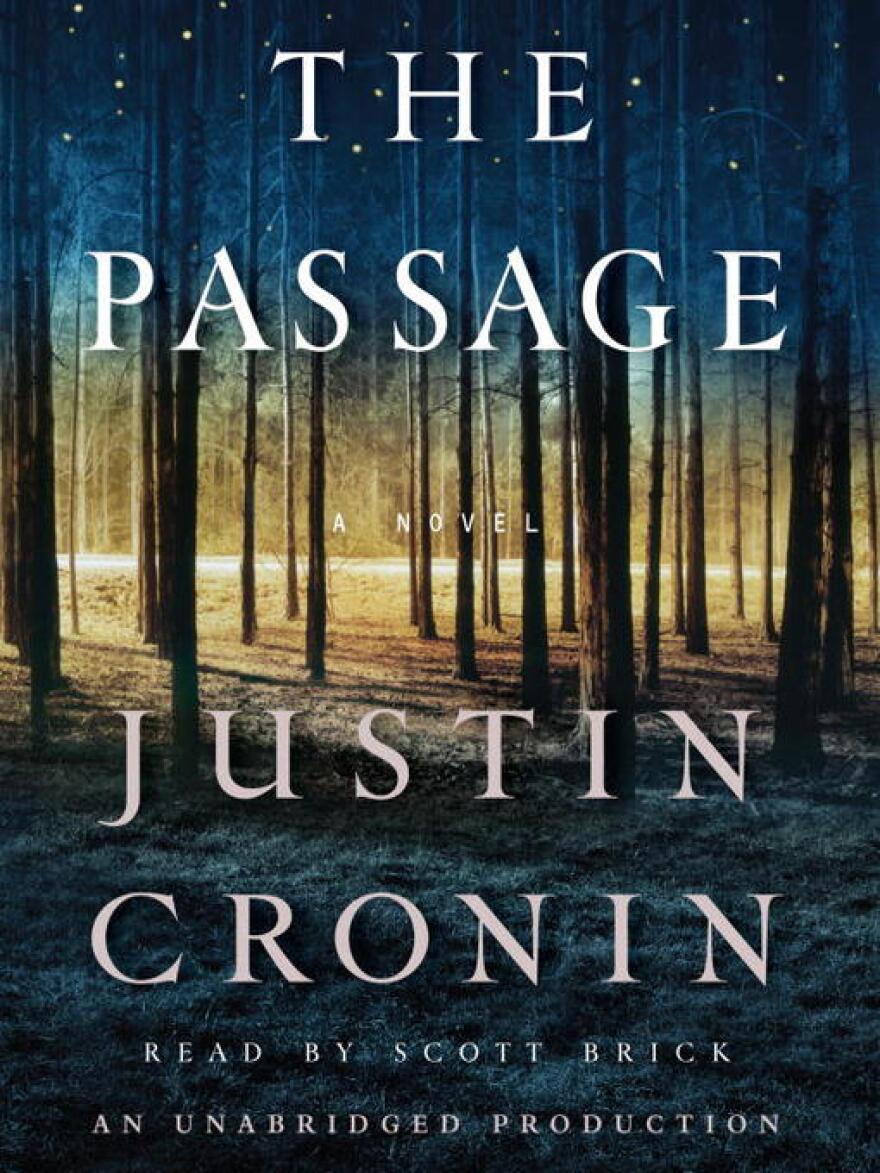The word ‘viral’ has so many connotations. From computers spreading memes to human beings spreading disease, it’s moved beyond the medical, to become part of popular culture. A conference at Virginia Tech will explore how the arts portray the science all next week with a series of events they’re calling, “Viral Imaginations.” Robbie Harris has more.
For a discovery that’s not even 200 years old, understanding how viruses work has not only revolutionized medicine, it’s become a controlling metaphor in how we think about the world.
Rebecca Hester, a science and technology in society professor whose work focuses on immigrant migration says, “We operate from what scholars call the molecular vision of life. Now we can think in terms of the spread of microbes and germs, the interaction between molecules at the biological level. So that kind of idea then informs so much of how we assess risk, how we conceptualize relationships, how conceptualize the threat—or non-threat— of immigrants.”
She recently taught a class about monsters, zombies and cyborgs that explored that viral metaphor and how it informs people’s ideas about immigrants.
It’s no great leap from science to science fiction where some kind of virus runs amok, creating fear of disease carriers. That’s a narrative Hester says supports fear of outsiders and points to immigrants as vehicles of contagion. “So there’s a whole question about our understandings of ourselves as risks of others as risks and how that becomes a social and cultural phenomenon related to how we treat each other."
And that’s the kind of thing organizers of the conference want to explore. Bernice Hausman, professor of English and medicine at Virginia Tech Carilion School of Medicine, says, “One of the things that’s interesting about apocalyptic fiction is that it both imagines the future in which, terrible thins happen and lots of people die and civilizations crumble." "But" she adds, “There is usually, also the imagining of a new society that comes out of that.”

And that’s what the best selling author, Justin Cronin, will be talking about when he reads from his book called The Passage at the Moss Arts Center in Blacksburg. It's the first of his trilogy about what happens after an escaped virus turns people into killing machines known simply as “the virals.”
Cronin sees his story as a very human saga. “It’s a story of rebirth but the tools that they use, the ones that enable them to survive are the same Eternal Verities of day to day human life. The only difference is that characters are running for their lives at all times.”
Cronin, who teaches at Rice University, says his book is about the human bond among survivors.
“If you’re running for you life all the time, what are you going to carry? The answer is, ‘somebody else.’ Somebody else. That’s the world that I wanted to create and those are the values, that I suppose, I wanted to champion in these novels.”
Justin Cronin will participate in discussions about his work as part of a week long series of events all evoking some aspect of what it means to be a virus and what a viruses mean to us. ‘Viral Imaginations' events include a showing of the zombie comedy flick Sean of the Dead at the Lyric Theater in Blacksburg, a virus spreading simulation event, and a zombie walk across the drill field at Virginia Tech. The public is invited. All events are free but pre-registration is required for some.
Here's the schedule:
Viral Outbreak! Monday, January 30, 2017, 12:00-4:00 pm, Writing Center, Newman Library
“Patient Zero” will be there at noon. Come get infected! Continues all week, 12:00-3:00pm.
JUSTIN CRONIN, Tuesday, January 31, 2017, 7:30pm, Fife Theatre, Moss Arts Center
Justin Cronin, author of The Passage, The Twelve, and The City of Mirrors. Free, ticket required.
Viral Imaginations Panel, Wednesday, February 1, 2017, 7:30pm, Cube, Moss Arts Center
Justin Cronin will be joined by Thomas Kerkering, Kathleen Alexander, Rebecca Hester, Priscilla Wald, and Bernice L. Hausman, to consider vampires, zombies, zoonosis, pandemic outbreaks, and the viral imagination. Free, ticket required.
Humans vs. Zombies! Thursday, February 2, 2017, 12:00-2:00 pm, Duck Pond
Join us for a game of Capture the Flag—pick your side! All materials provided. Dress warm!!!
Zombie Walk, Friday, February 3, 2017 4:00-5:00 pm, Drill Field at Virginia Tech
Shaun of the Dead, Friday and Saturday, February 3 and 4, 2017, midnight, Lyric Theatre
Viral Imaginations Writing Contest, open to all students at Virginia Tech Prizes to the top three entries (1st=$300, 2nd=$200, 3rd=$100). Entries will be judged by Joseph Salvatore, author of To Assume a Pleasing Shape. 15 pp. max. Due to vollmer@vt.edu by Feb. 15 (new due date!). Award ceremony in spring.
Additional Viral Opportunities:
Combatting Contagion: Pharmaceuticals, Security & the Medical Countermeasure Enterprise - Monday, February 20, 2017, 4:00-5:30pm, Surge 104B
Stefan Elbe is Professor of International Relations and Director of the Centre for Global Health at the University of Sussex. His talk will focus on his new book, Combatting Contagion, which explores the entanglement of pharmaceuticals and security through a study of the world’s most prominent medical countermeasure – Tamiflu.
Viral Imaginations and the Security Politics of a Zombie Apocalypse - Monday, February 27, 2017, 4:00-5:30pm, Randolph 221
Gitte du Plessis is a Ph.D. Candidate in the Department of Political Science at the University of Hawaii at Manoa. Drawing on practices of the U.S. anti-terror state and political theories of the real, the virtual, and the end of the world, Gitte’s talk will describe some of the different viral imaginations zombies offer their audiences to tap into, and how these imaginations resonate with actual security threats.

